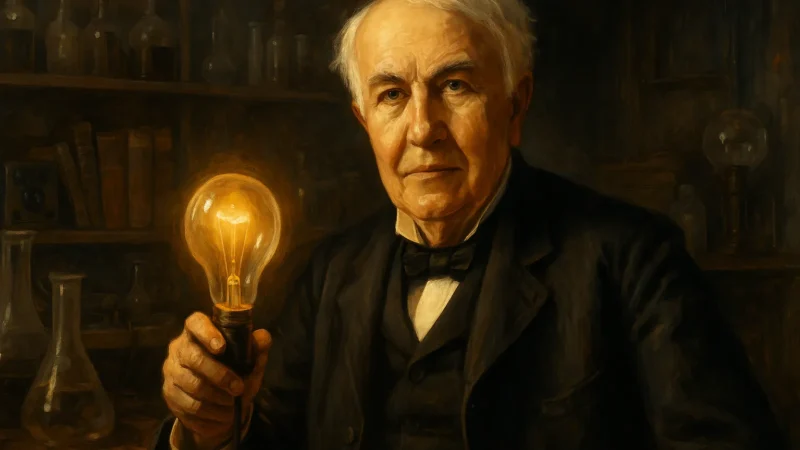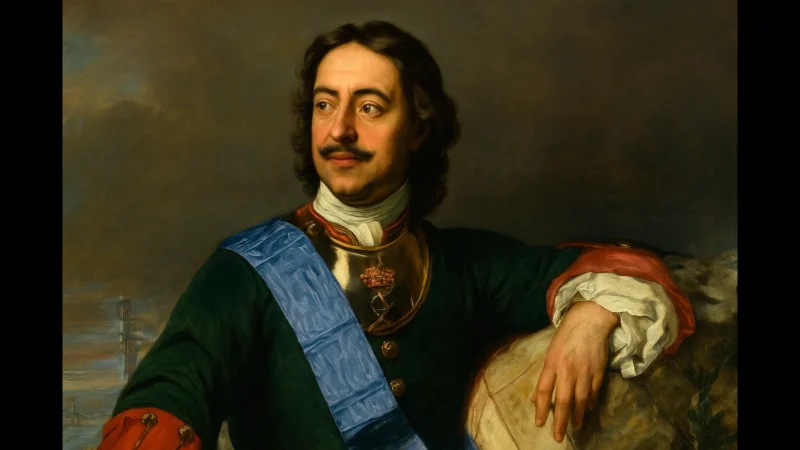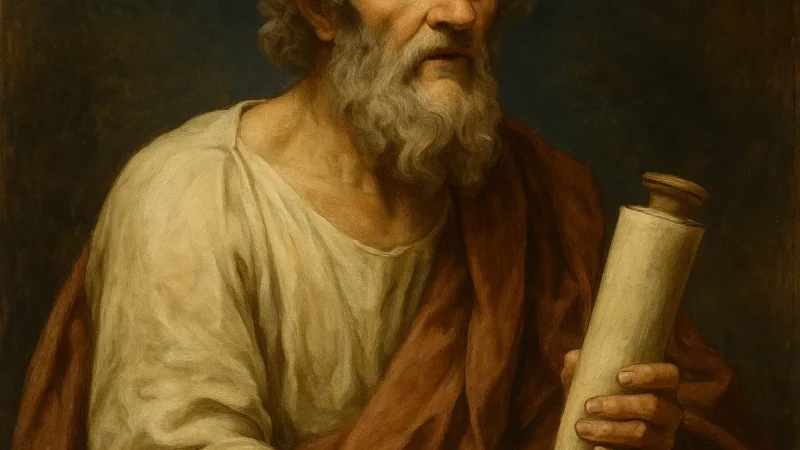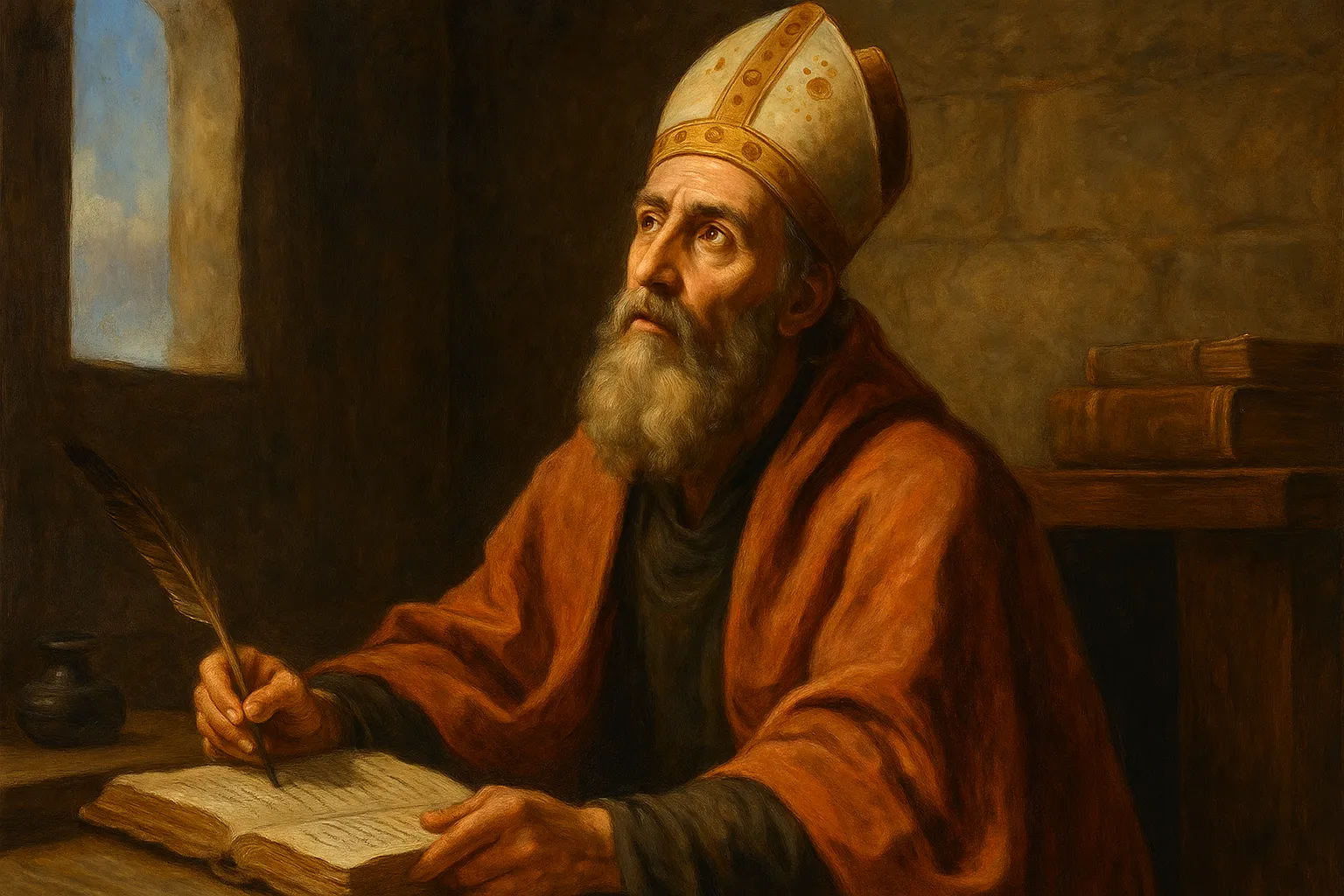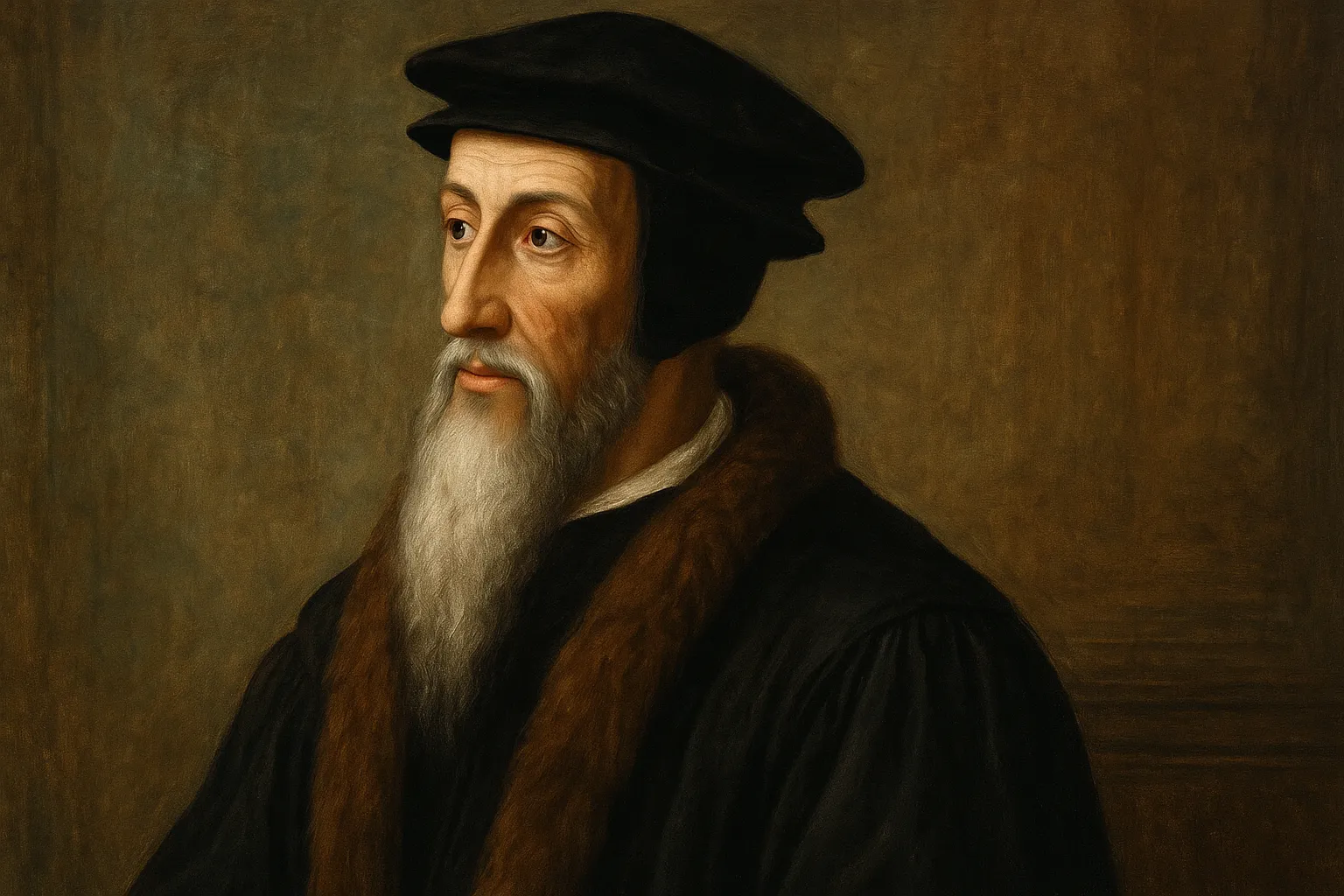Biography of Ludwig van Beethoven: The Genius Who Transformed Music Forever
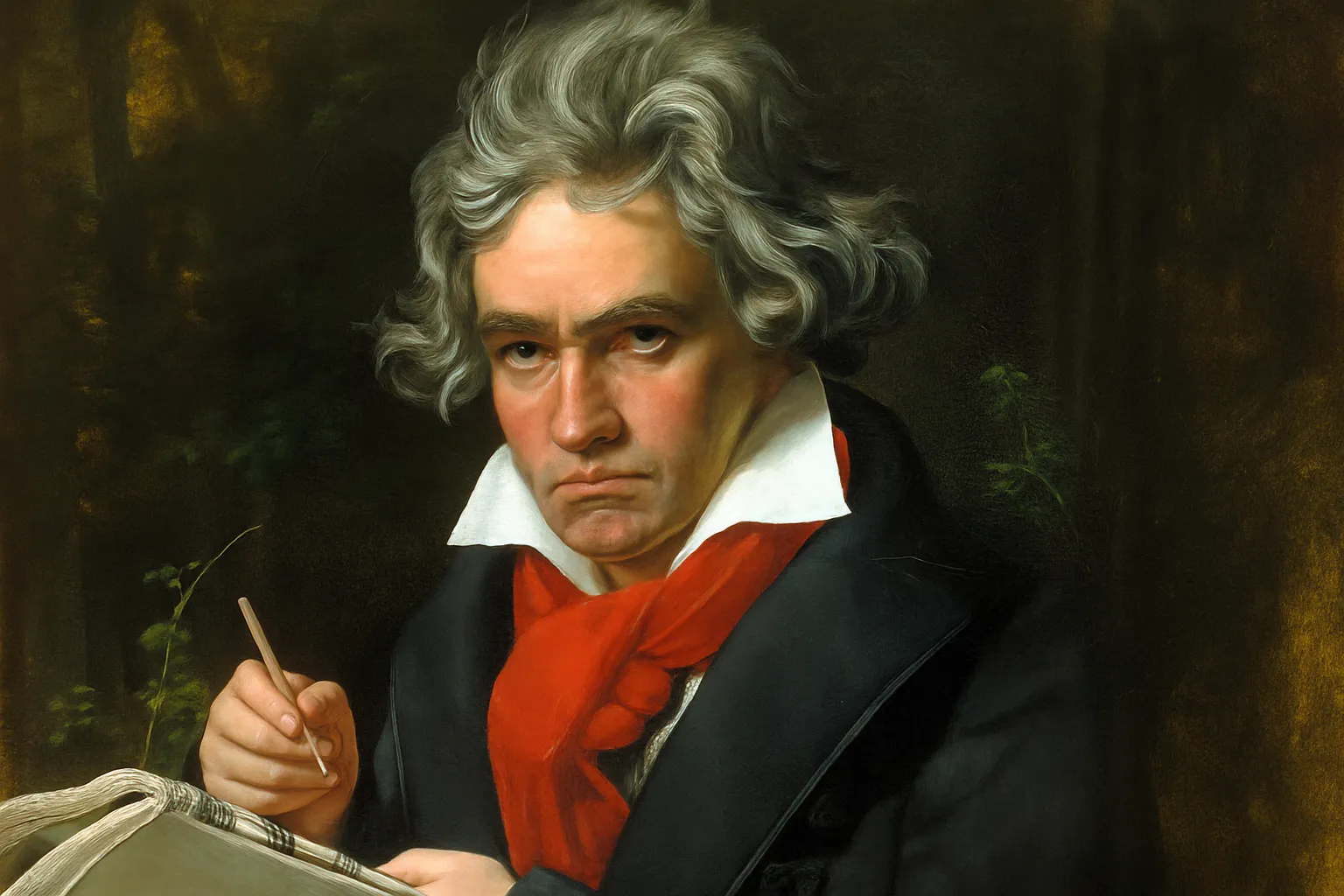
Ludwig van Beethoven (1770–1827) is regarded as one of the most influential and innovative composers in the history of music. His life, marked by boundless creativity and a personal struggle against progressive deafness, radically transformed the musical language from Classicism to Romanticism. Beethoven not only composed some of the most iconic works of all time but also redefined the role of the musician, the purpose of art, and the very idea of artistic genius.
Origins and Early Training
Birth in Bonn
Ludwig van Beethoven was born on December 16, 1770, in Bonn, in the Electorate of Cologne, part of the Holy Roman Empire (present-day Germany). He was the second child of Johann van Beethoven, a court musician, and Maria Magdalena Keverich, a woman of modest origins but great religious and emotional sensitivity.
His father, eager to create a “new Mozart,” began instructing him at an early age in piano, violin, and composition, often with rigorous and even abusive methods.
Youth and Early Success in Bonn
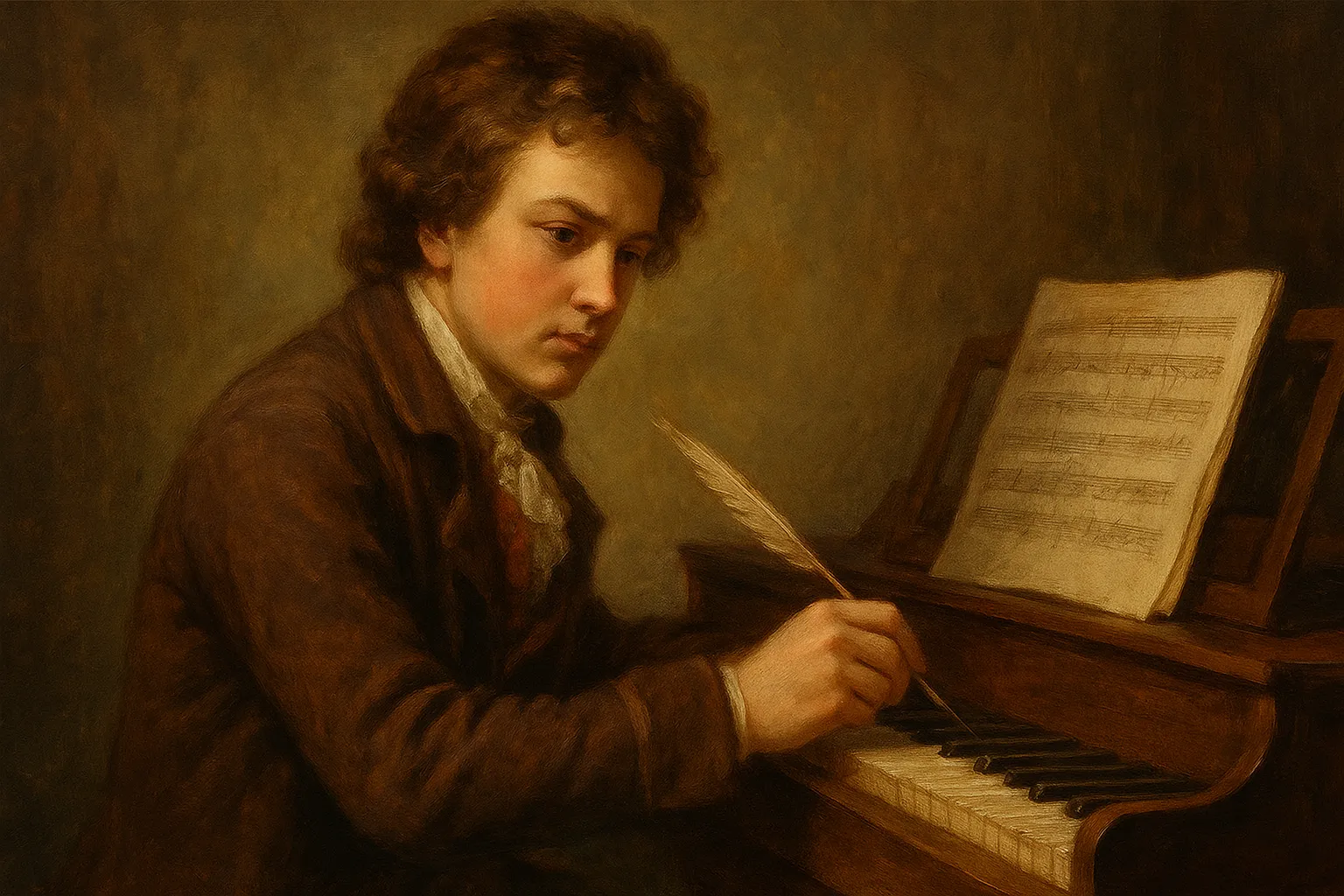
Precocious Talent
By the age of 12, Beethoven had already composed his first works and held a position as assistant organist at the court of Bonn. He received instruction from prominent local musicians such as Christian Gottlob Neefe, who immediately recognized his extraordinary potential.
During his adolescence, he encountered the works of Bach, Haydn, and Mozart, whose styles would influence his early creative phase.
Journey to Vienna and Encounters with Great Masters
Arrival at Europe’s Musical Epicenter
In 1792, supported by patrons from Bonn, Beethoven moved to Vienna, then the musical capital of Europe. There he studied under Joseph Haydn, and briefly with Antonio Salieri and Johann Albrechtsberger.
Despite his strong character and difficulty submitting to teachers, Beethoven quickly gained fame in Vienna as a virtuoso pianist, exceptional improviser, and promising composer.
His public debut as a pianist in 1795 was a resounding success, marking the beginning of his social and artistic ascent.
The Initial Phase: Classical Inheritance
First Masterpieces
During the 1790s, Beethoven published his first piano concertos, trios, violin sonatas, and string quartets. While largely respecting classical structures established by Haydn and Mozart, his works already displayed distinctive traits:
- Intense emotional expression.
- Bold thematic development.
- Dramatic dynamics and abrupt contrasts.
Works such as his First Symphony (1800) and early piano sonatas reveal a young composer absorbing tradition while beginning to stretch its boundaries.
The Onset of Deafness: Personal Crisis
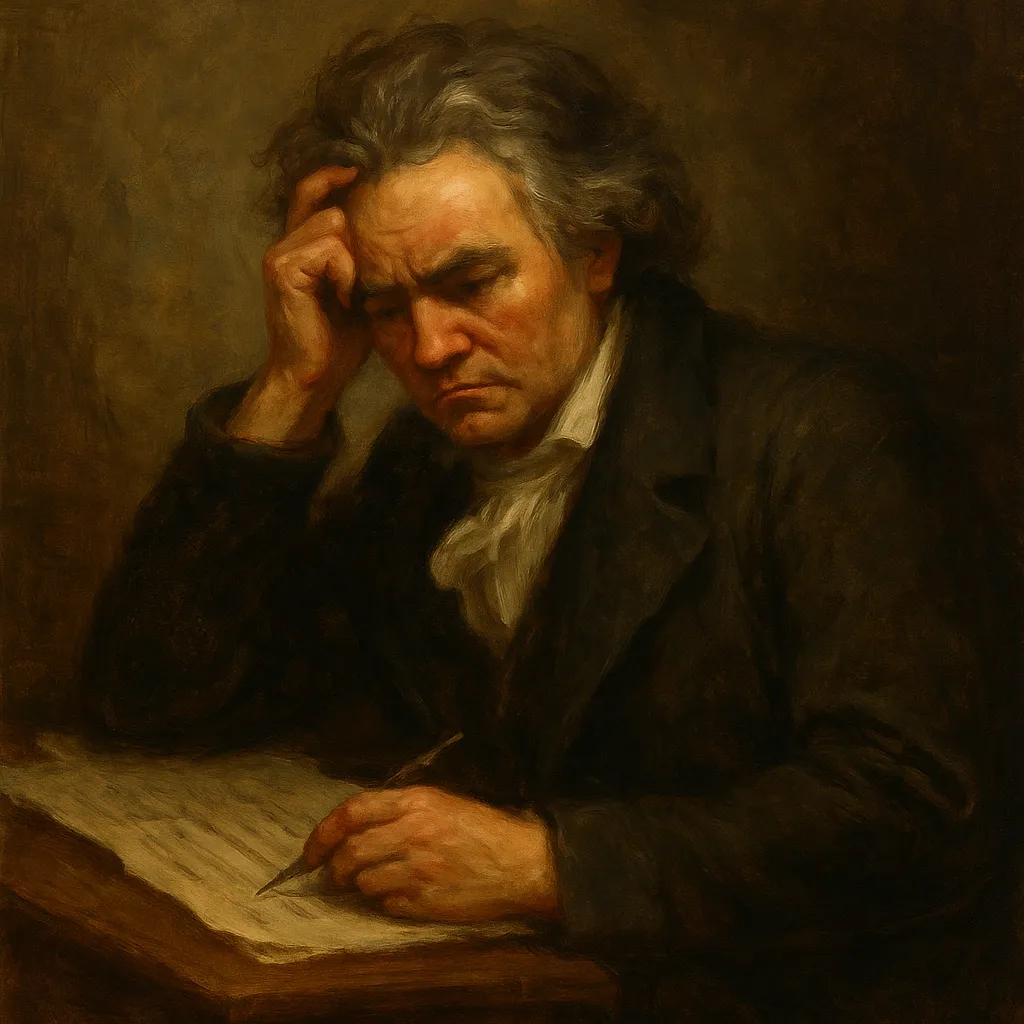
First Symptoms
Around 1796, Beethoven began experiencing the first signs of hearing loss. This degenerative condition progressed irreversibly over the following years.
The psychological impact was devastating. Music was not only his art but his very identity. His letters from the period, especially the Heiligenstadt Testament (1802), reflect his deep despair and suicidal thoughts.
Yet, he transformed his anguish into an overwhelming creative force that led him to produce some of his most revolutionary works.
The “Heroic” Period: The Birth of Musical Romanticism
Pushing Musical Boundaries
Between 1803 and 1812, Beethoven composed a series of works that marked a definitive turning point in Western music history. This period is often called the “heroic period.” Key works include:
- Symphony No. 3 “Eroica” (1803): a monumental symphony breaking classical forms.
- Symphony No. 5 (1808): with its iconic four-note opening motif.
- Piano Concertos No. 4 and No. 5 “Emperor”.
- Piano sonatas such as “Appassionata” and “Waldstein”.
- Triple Concerto and Violin Concerto.
Beethoven expanded formal structures, orchestration, expressivity, and emotional intensity, laying the foundation for Romantic music.
Personal Life: Solitude and Romantic Turmoil
Struggles with Human Relationships
Though admired and supported by aristocratic patrons, Beethoven remained a solitary figure. He never married, despite intense romances and friendships with women of high social standing, including his enigmatic “Immortal Beloved” (whose identity remains debated).
His difficult character—marked by distrust, extreme sensitivity, and mood swings—complicated both personal and professional relationships.
Final Years: The Isolated Genius
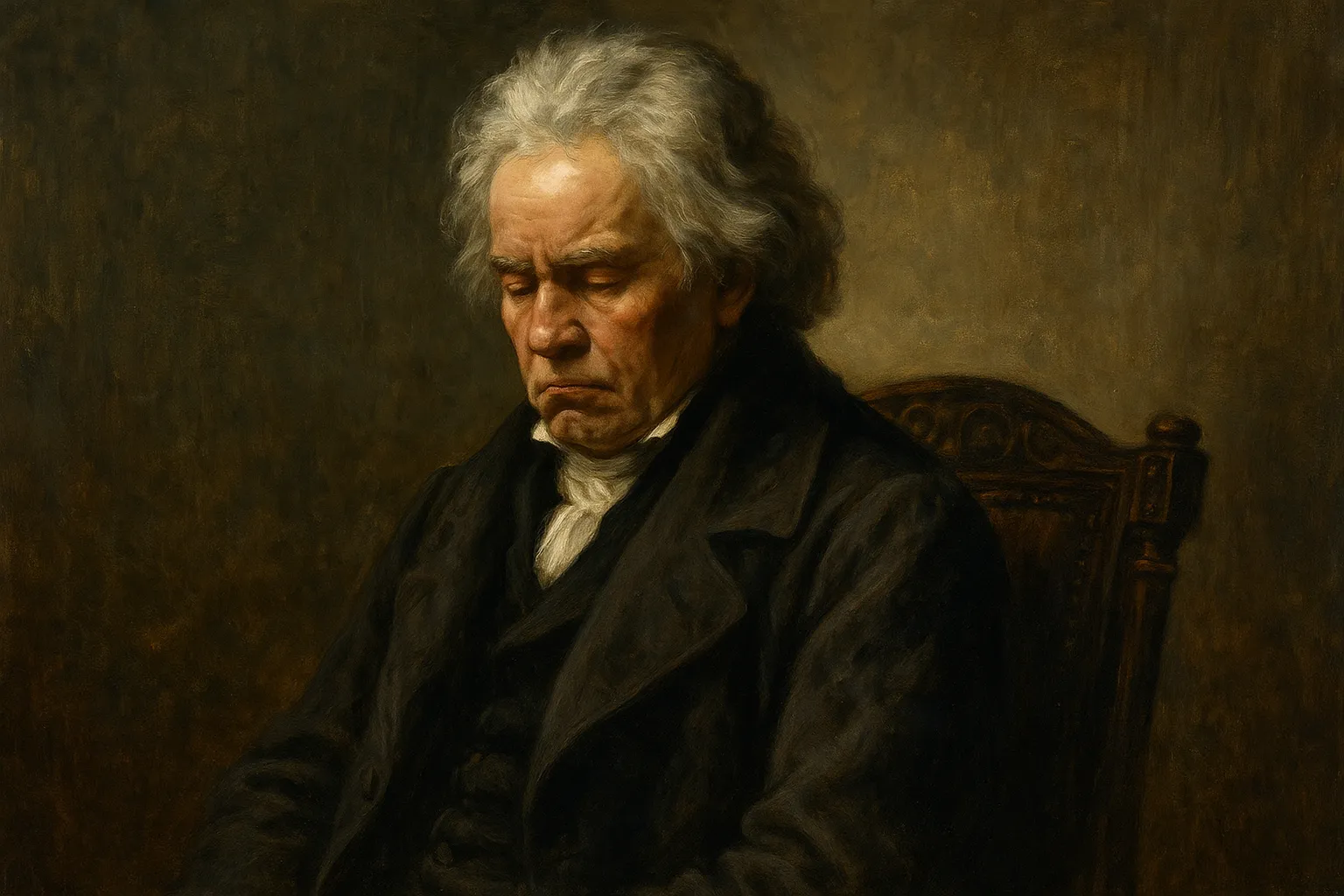
Total Deafness
From 1815 onward, Beethoven became completely deaf. This auditory isolation gradually separated him from public life and direct interaction with performers and audiences.
Nevertheless, his creativity reached new heights of depth, complexity, and transcendence during this late phase.
Late Works: Pushing Musical Language to the Limit
Works of Introspection and Sublimity
Between 1815 and 1827, Beethoven composed some of the most sublime and revolutionary works in music history:
- Symphony No. 9 “Choral” (1824): culminating with the famous “Ode to Joy.”
- Late string quartets (Op. 127–135): works of extraordinary formal and expressive innovation.
- Missa Solemnis: a monumental work of profound spirituality.
- Late piano sonatas, such as Op. 109, 110, and 111, considered absolute pinnacles of the piano repertoire.
These compositions defied the conventions of his time and anticipated the music of the future.
Death and Funeral
The End of an Extraordinary Life
Beethoven died on March 26, 1827, in Vienna, at the age of 56, after years of liver disease and medical complications.
His funeral was a massive event. Over 20,000 people attended his funeral procession, with prominent musical figures like Franz Schubert participating in the rites.
Critical Assessment of His Legacy
The Revolutionary of Music
Beethoven represents a historic turning point:
- Surpassing Classical limits.
- Launching musical Romanticism.
- Reclaiming the composer’s autonomy, independent of aristocratic patronage.
- Elevating instrumental music to a level of philosophical and spiritual expression never seen before.
His life embodies the Romantic ideal of the genius artist battling fate, pain, and adversity to achieve aesthetic transcendence.
Posthumous Influence
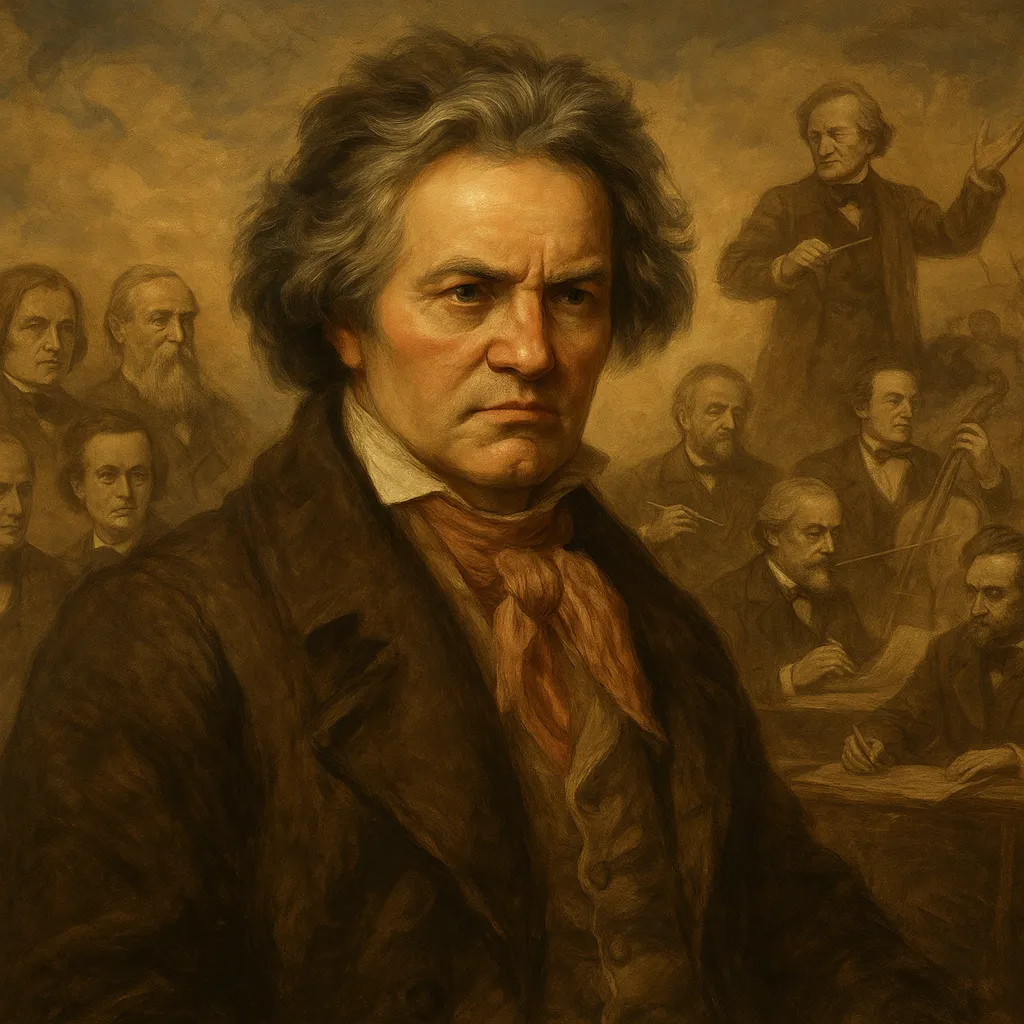
The Beacon of Romanticism and Beyond
Beethoven’s legacy profoundly shaped 19th- and 20th-century musical development:
- Inspired Romantic composers such as Schumann, Brahms, Wagner, Liszt, Bruckner, Mahler.
- Redefined the symphony, sonata, and string quartet.
- Subject of philosophical and aesthetic studies (Hegel, Nietzsche, Adorno).
- A cultural figure transcending music, becoming a universal symbol of struggle, freedom, and artistic genius.
The life of Ludwig van Beethoven is a story of the triumph of the human spirit over adversity. His deafness, far from being an insurmountable obstacle, provided the context for his greatest creative achievements.
Beethoven forever transformed musical language, opening new pathways of emotional, philosophical, and aesthetic expression. His music continues to resonate as a testament to humanity’s ability to create immortal beauty amid suffering.
His legacy lives on, inspiring every new generation of musicians, artists, and listeners across the globe.

